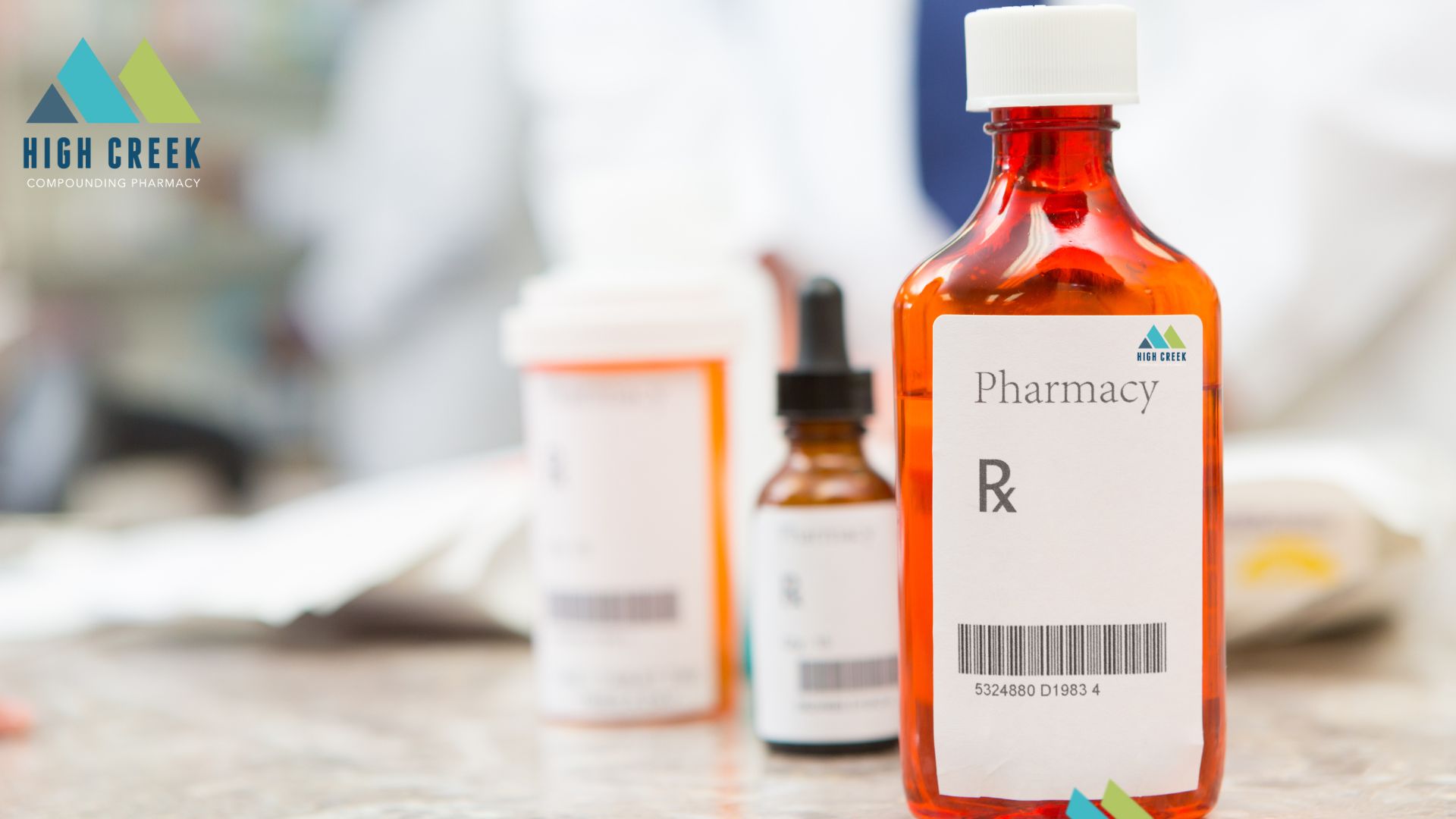
04 Jul Prescription Compounding: Providing Tailored Solutions for Medication Challenges
In healthcare, individuals often face unique challenges regarding medication management. While many medications are commercially available, some patients require personalized solutions to meet their needs. This is where prescription compounding plays a crucial role. In Richmond, UT, prescription compounding provides tailored solutions to overcome medication challenges and ensure patients receive the care they deserve. In this blog post, we will explore the benefits of prescription compounding and how it addresses the diverse medication requirements of individuals in Richmond.
What is Prescription Compounding?
Prescription compounding is a specialized practice that involves the personalized preparation of medications to meet the specific needs of individual patients. It requires the skillful combination of different ingredients, adjustment of dosages, and even modification of the medication’s form to enhance its efficacy or cater to particular patient requirements. Trained pharmacists are crucial in compounding medications, working closely with healthcare providers to ensure each prescription is customized to the patient’s needs. This approach allows for greater flexibility in medication therapy. It can be particularly beneficial for patients who require alternative dosage forms, have allergies or sensitivities to certain ingredients, or need specific strengths or combinations of medications that are not commercially available.

The Importance of Tailored Solutions
Prescription compounding refers to the practice of customizing medications to meet the unique needs of individual patients. Tailored solutions in prescription compounding play a crucial role in healthcare, offering several vital benefits in Richmond, UT, and beyond. Let’s explore the significance of tailored solutions in prescription compounding:
- Patient-Specific Formulations: Patients have different requirements, preferences, and sensitivities regarding medications. Tailored solutions allow compounding pharmacists to create custom formulations that meet each patient’s specific needs. This flexibility enables the compounding of drugs without allergens, dyes, or other ingredients that a patient may be sensitive to, enhancing tolerability and adherence.
- Dose Adjustment: Some patients may require medications in strengths or dosages that are not commercially available. Compounding pharmacies can adjust the dosage and strength of drugs according to the patient’s specific requirements. This is particularly useful for pediatric patients, elderly individuals, or those with unique medical conditions requiring personalized dosing.
- Combination Medications: In some instances, patients may benefit from the simultaneous use of multiple medications. Compounding pharmacists can combine active ingredients into a single formulation, simplifying medication administration and improving compliance. This is especially advantageous for patients who have difficulty swallowing multiple pills or need various medications for a particular condition.
- Alternative Delivery Methods: Tailored solutions in prescription compounding also enable alternative delivery methods. For example, patients who struggle with oral medicines can opt for transdermal creams, sublingual troches, nasal sprays, or suppositories, among other options. These alternative forms enhance convenience, absorption, and overall patient experience.
- Overcoming Drug Shortages: Drug shortages are not uncommon in the healthcare industry. Compounding pharmacies can step in during such situations to provide patients with crucial medications that may not be readily available. By compounding medications in-house, pharmacies can help ensure patients receive the necessary treatments promptly.
- Veterinary Medications: Tailored solutions are not limited to human medicine. Compounding pharmacies can also create customized animal medications, addressing the specific needs of pets, livestock, or exotic species. This allows veterinarians to treat their patients effectively, even when commercial veterinary drugs are not suitable or available.
The Process of Prescription Compounding
Prescription compounding is a specialized practice in which a pharmacist creates customized medications to meet the unique needs of individual patients. These medications are prepared by combining different pharmaceutical ingredients in specific strengths and dosage forms as prescribed by a healthcare provider.
- Prescription: A healthcare provider, such as a physician or veterinarian, writes a prescription specifying the necessary compounded medication for a patient. They may do this when commercially available drugs are not suitable or available or when personalized dosage forms are required.
- Compounding Pharmacy: The patient takes the prescription to a compounding pharmacy. These pharmacies are equipped with specialized equipment, facilities, and trained pharmacists with compounding techniques expertise.
- Evaluation: The compounding pharmacist reviews the prescription and assesses the patient’s needs. They may consult with the prescriber to clarify details or discuss alternative dosage forms or ingredients if necessary.
- Ingredient Selection: The pharmacist selects the pharmaceutical-grade elements required to compound the medication. These ingredients may include active pharmaceutical ingredients (APIs), excipients, and flavoring agents. They ensure that the selected ingredients meet quality and safety standards.
- Compounding Process: The compounding pharmacist follows precise compounding techniques to combine the ingredients in the required strength, dosage form, and quantity. Depending on the specific medication being prepared, they may use various compounding methods, such as mixing, grinding, or melting.
- Quality Control: Throughout the compounding process, the pharmacist performs quality control checks to ensure the accuracy, purity, and potency of the compounded medication. They may utilize specialized equipment, conduct tests, or send samples to external laboratories for analysis.
- Packaging and Labeling: Once the drug is compounded, it is packaged in appropriate containers, such as bottles, tubes, or capsules, per the patient’s needs. The pharmacist applies a custom label that includes relevant information, such as the patient’s name, prescribing healthcare provider, dosage instructions, and expiration date.
- Patient Consultation: The compounding pharmacist provides detailed instructions on how to use the compounded medication safely and effectively. They address any concerns or questions the patient may have regarding the drug.
Benefits of Prescription Compounding
Prescription compounding offers several benefits for patients in Richmond, UT, as it provides customized medication solutions tailored to individual needs. Here are some specific advantages of prescription compounding:
- Personalized Medications: Compounding allows pharmacists to create customized medications that meet the unique requirements of each patient. This is particularly useful for individuals with allergies or sensitivities to certain ingredients found in commercially available drugs. With compounding, pharmacists can exclude problematic components and customize dosages, forms (such as creams, gels, or liquids), and flavors to enhance patient compliance and comfort.
- Dosage Adjustments: Not all patients fit into commercially available standard dosage forms and strengths. Compounding pharmacists can adjust dosages to provide medications with the same power a patient requires. This is particularly beneficial for children, elderly individuals, or individuals with specific conditions that require precise dosing.
- Combination Medications: Sometimes, a patient may need multiple medications, which can be inconvenient to take separately. Compounding allows pharmacists to combine compatible medications into a single dosage form, simplifying the medication regimen and improving patient adherence.
- Discontinued Medications: Occasionally, manufacturers may terminate medicines due to low demand or other reasons. Compounding pharmacies can recreate these medications using the active ingredients, ensuring patients continue to have access to necessary treatments.
- Allergy-Free Formulations: Patients allergic to certain ingredients like gluten, lactose, dyes, or preservatives may struggle to find suitable medications. Compounding allows pharmacists to prepare allergy-free formulations, eliminating problematic elements and ensuring patients can take their prescribed medications without adverse reactions.
- Veterinary Compounding: Compounding is not limited to human medicine. Veterinary compounding provides customized medications for pets, allowing veterinarians to tailor treatments based on each animal’s specific needs. This is especially valuable for pets with difficulty taking commercial medications or requiring non-standard dosages.
Choosing a Reliable Compounding Pharmacy in Richmond, UT
When seeking tailored medication solutions, choosing a reputable compounding pharmacy is essential. Consider the following factors:

- Accreditation and Certifications: Look for a compounding pharmacy accredited by recognized organizations that adhere to industry standards, such as the Pharmacy Compounding Accreditation Board (PCAB).
- Experience and Expertise: Ensure the compounding pharmacy has experienced pharmacists who specialize in prescription compounding and stay updated with the latest advancements in the field.
- Collaborative Approach: A reliable compounding pharmacy works closely with healthcare providers to understand patient requirements and provide comprehensive solutions.
Tips for Ensuring the Quality and Effectiveness of Compounded Medications
Regarding compounded medications in Richmond, UT, there are several tips to ensure their quality and effectiveness. First and foremost, choosing a reputable compounding pharmacy that adheres to strict quality control standards is essential. Look for a pharmacy that is licensed and accredited and that has experienced pharmacists who specialize in compounding.
Secondly, communication between the patient, prescriber, and pharmacist is critical. Patients must provide accurate and detailed information about their medical history, allergies, and current medications to the pharmacist. This will help the pharmacist customize the compounded medication for the patient’s needs.
Lastly, following proper storage and handling instructions for compounded medications is essential. Some medicines may require refrigeration or protection from light, so it is important to read and follow the pharmacist’s instructions carefully. By following these tips, patients can ensure that they receive high-quality compounded medications that are tailored to their individual needs in Richmond, UT.
Conclusion
In conclusion, Prescription Compounding at High Creek Pharmacy in Richmond, UT, offers a unique and tailored solution to patients’ medication challenges. With their expert compounding services, they are able to customize medications to meet individual needs, ensuring optimal effectiveness and patient satisfaction. Whether it’s adjusting dosages, creating alternative delivery methods, or eliminating allergens, High Creek Pharmacy’s dedication to personalized care sets them apart. If you’re looking for a pharmacy that goes the extra mile to provide tailored solutions, I highly recommend contacting High Creek Pharmacy. Your health and well-being deserve the utmost attention, and High Creek Pharmacy is here to deliver just that.

No Comments